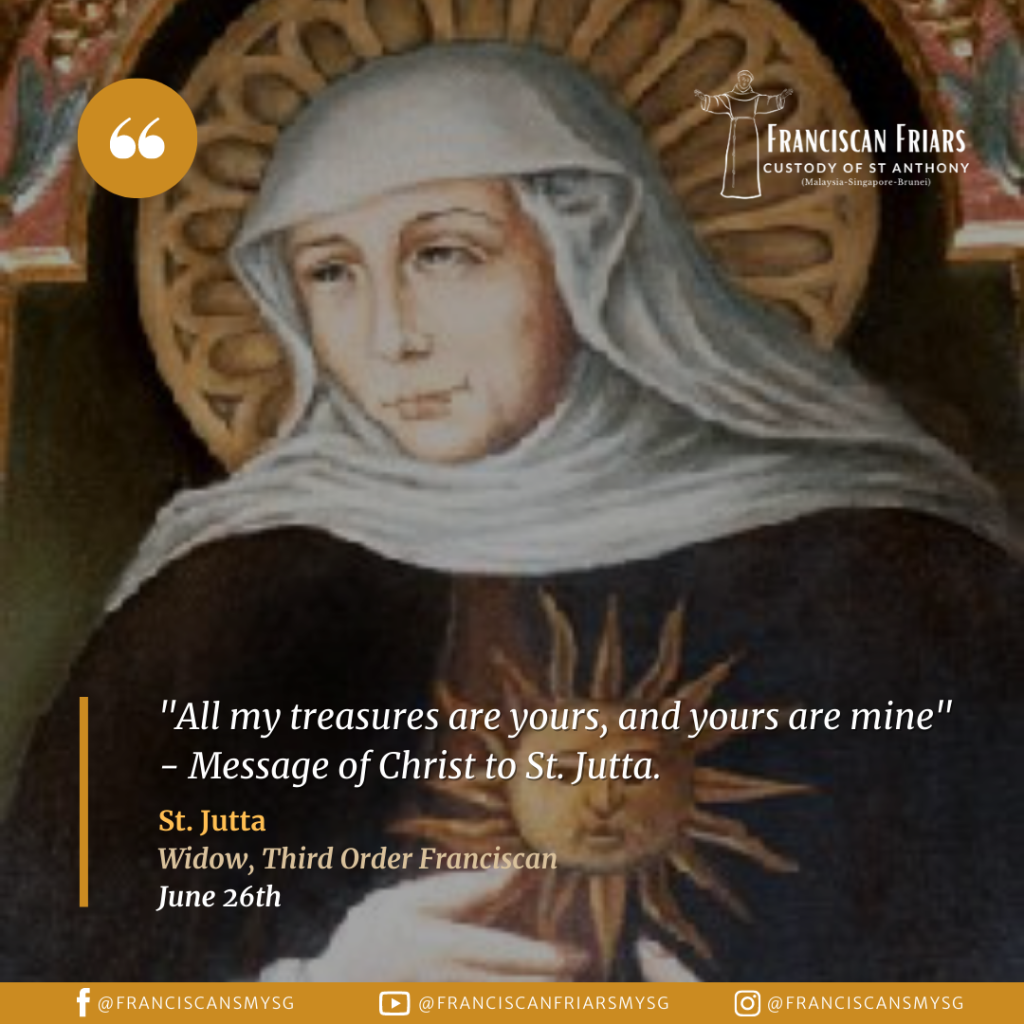
St. Jutta was born in Thuringia, in Germany. At the age of fifteen, she married a nobleman, with whom she enjoyed a happy marriage. Inspired by the example of St. Elizabeth of Hungary, a Thuringian princess who had renounced her royal station to embrace as a Franciscan tertiary, Jutta attempted to conform her life, and that of her family, to the principles of the Gospel: charity, service and a spirit of poverty.
While on pilgrimage to the Holy Land, Jutta’s husband died, leaving her to raise their children alone. When, over time, each one of them entered religious life, she was free to pursue her heart’s desire. After giving away all her property to the poor, she donned a simple dress and became a wandering pilgrim. Though many were moved by her piety and the austerity she had exchanged for her precious privilege, others greeted her conduct with derision.
Jutta liked to say there were three things that brought one nearer to God: painful illness, exile from home and voluntary poverty. She experienced all three. Eventually she made her way to a distant corner of Prussia, where she became a Third Order Franciscan and took up residence as a solitary hermit. Many visitors found a path to her home, whether seeking nursing care, consolation in their troubles, or spiritual counsel.
She died at the age of sixty and was later embraced as a patroness of Prussia.
Source : The Franciscan Saints (Franciscan Media)





0 Comments